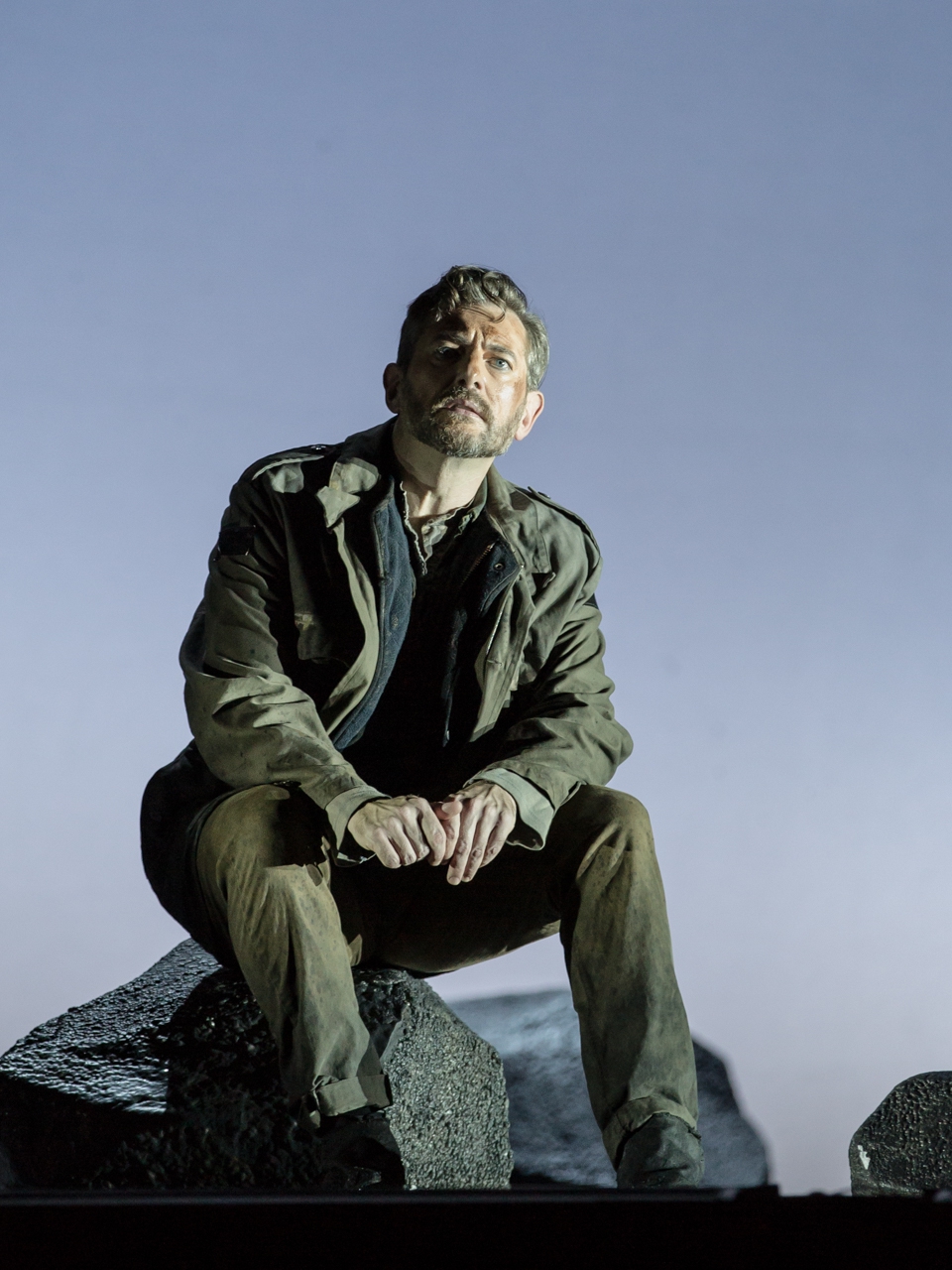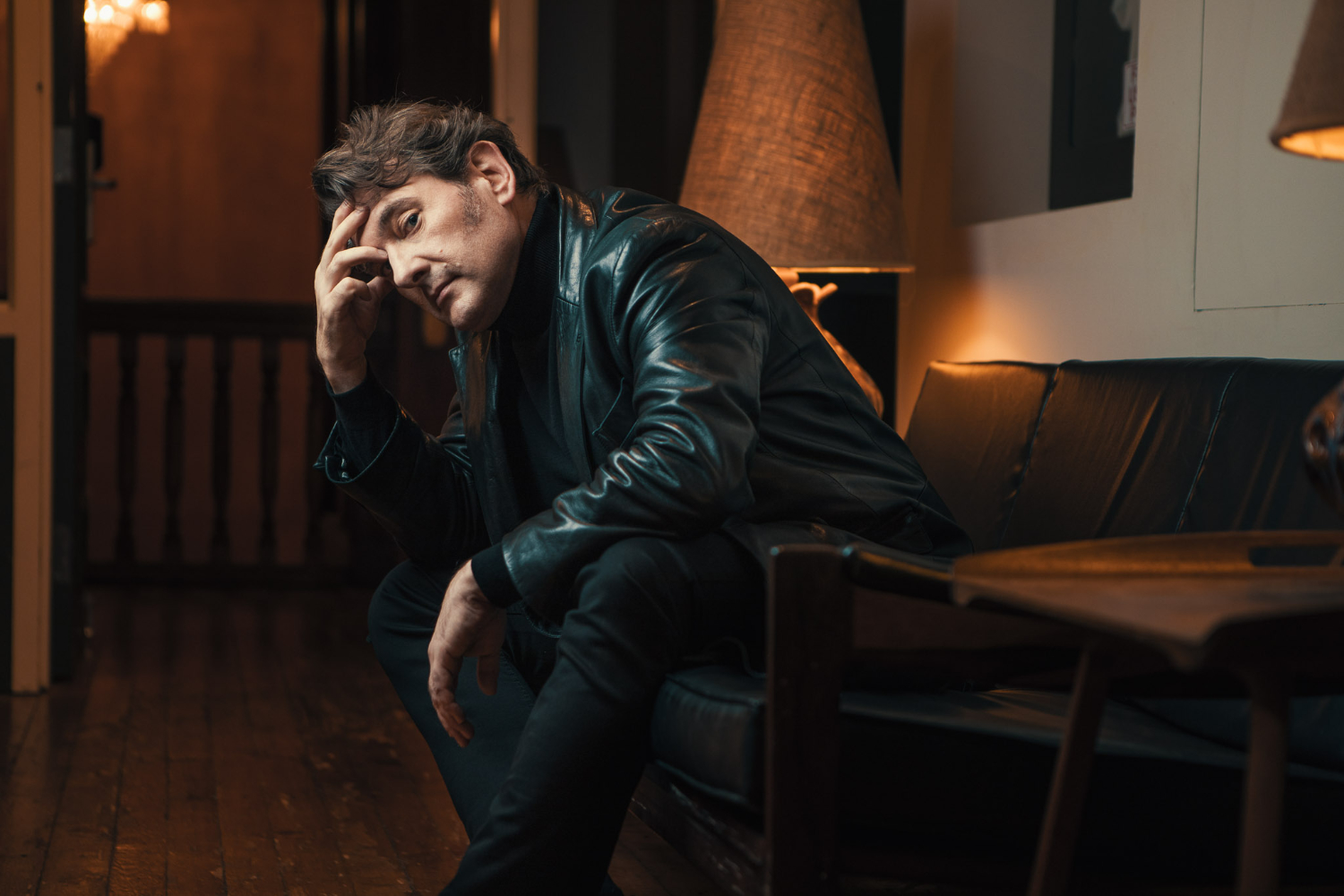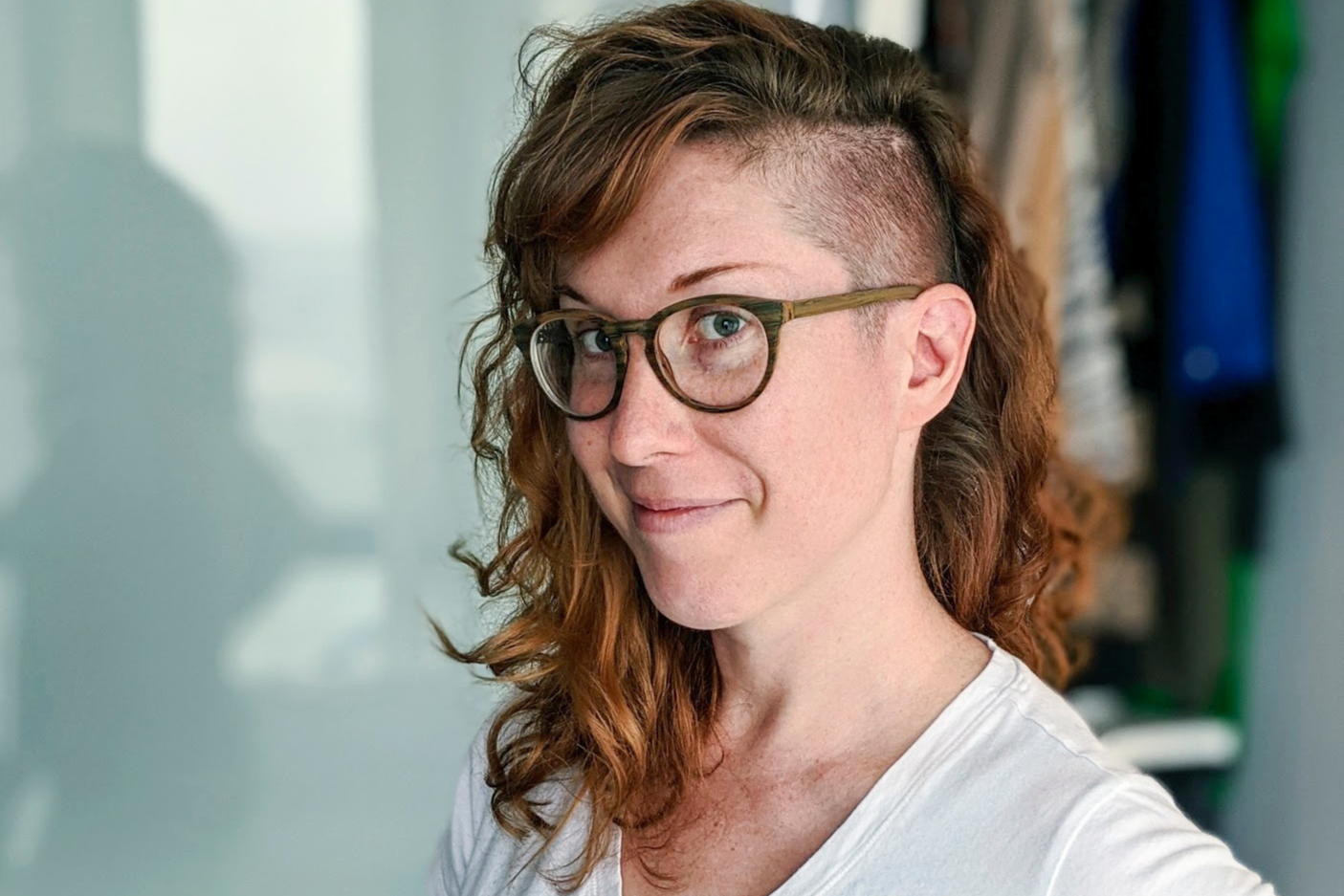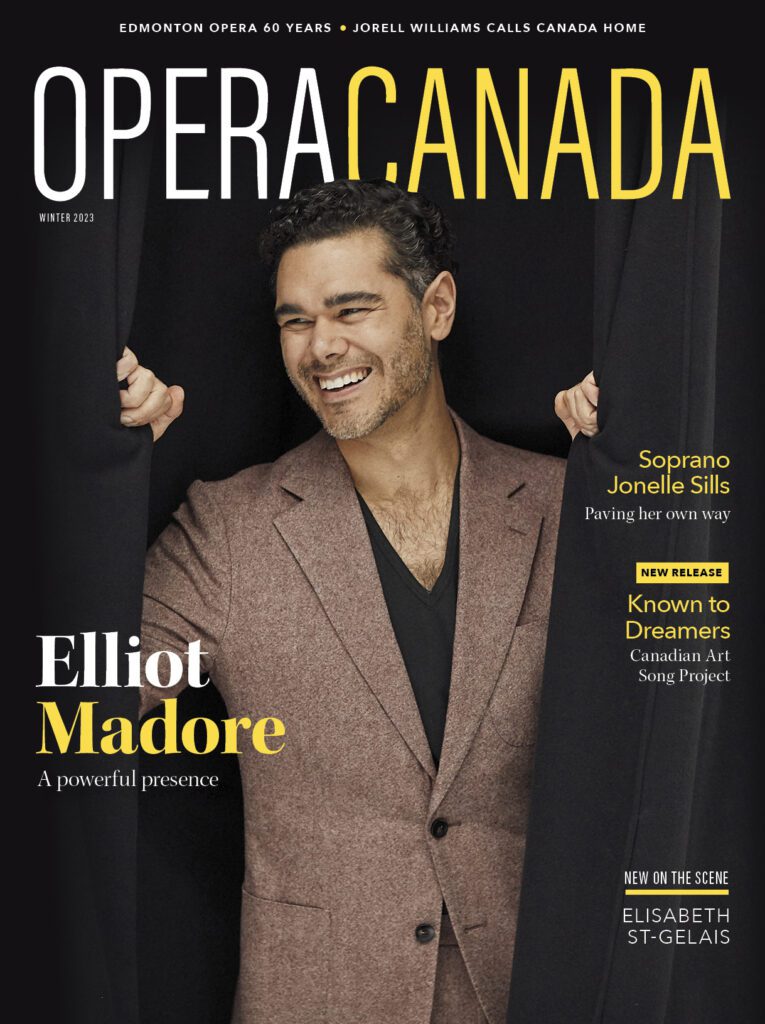This is the first in a new series of Q&As with the artists of Canada’s opera scene. After our “Quarantine Questions” from the spring/summer of 2020, we’re checking in once again with these artists as they share new perspectives on mid-pandemic opera. First up: baritone Brett Polegato.
After nearly a year away from a “normal” performance calendar, what perspective have you gained about the worlds of opera and classical music? What is its importance to you, and how does this compare to this time last year?
“Well, here we are. Ten months into this mess. I honestly thought that by now we would have moved forward in some way but it appears that the performing arts are just as ‘locked down’ as they were in March. It is no secret that the majority of classical music companies have transferred, through the use of the Force majeure clause in our contracts, much of the financial burden of this pandemic onto the artists. This isn’t to say that companies aren’t facing financial struggles of their own – they certainly are! – but any support to these companies through grants and from donors is not trickling down to us, the artists. We have been left to flounder on our own. And while the government has been helping us to stay afloat through the introduction of assistance programmes like CERB and its replacement, CRB, they have not made any concessions to the pandemic rules that might help us to perform in some non-virtual way, nor have they turned to us for suggestions on how live performances might take place in a safe environment. It’s okay for hockey to go ahead but performing arts venues stay shuttered, despite the fact that arts and culture contributes 2.8% to GDP annually.
“Before the pandemic, I had believed that the classical music family was a strong and supportive one but the events of the past ten months have shown me that, in the eyes of too many companies, artists are expendable. And in the eyes of the government, we are not a priority. As I move into the next phase of my performance career, I hope that I can find more time to devote to the development of younger artists and to making the business a place where we, the artists, matter much more.”
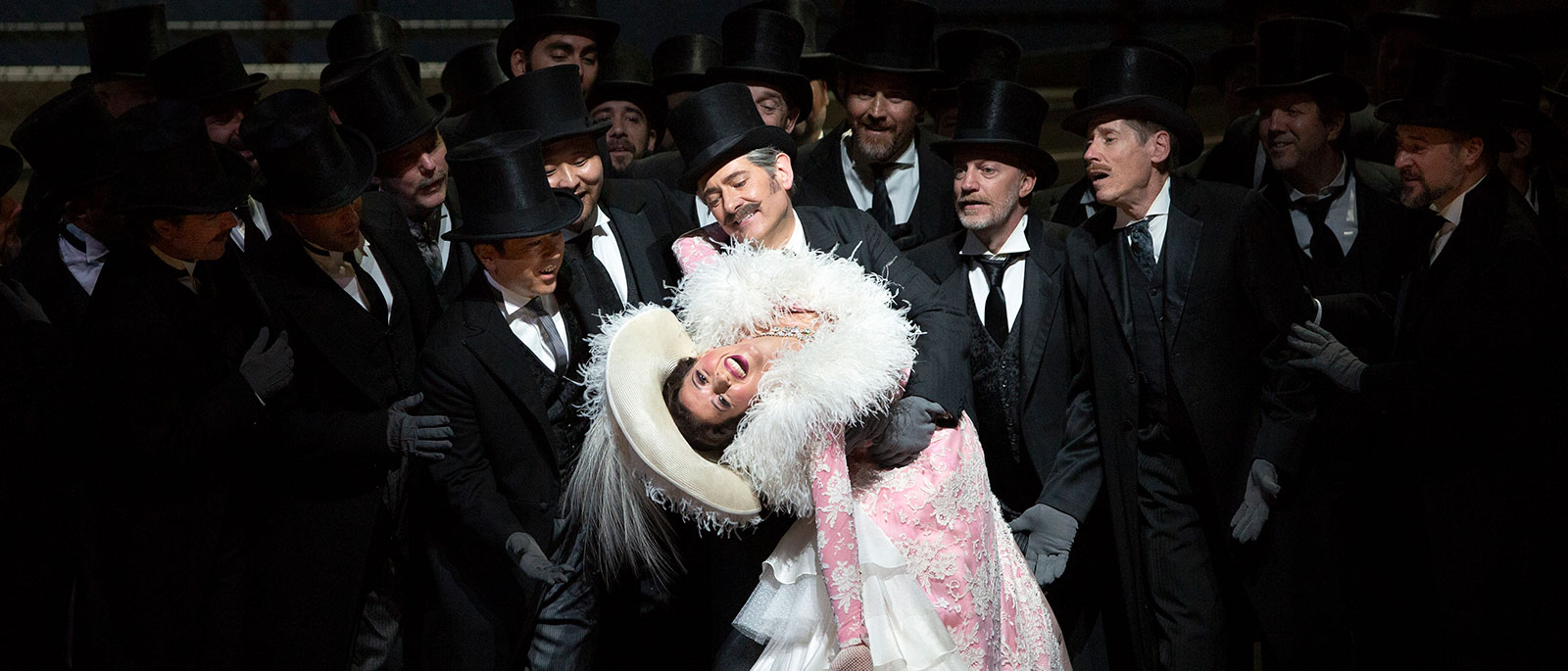
Brett Polegato as Brétigny alongside Lisette Oropesa as Manon in The Metropolitan Opera’s production of Manon, 2019. Photo: Marty Sohl/Met Opera.
What do you miss the most about giving and hearing live performances?
“Simply put, I miss the communion that only a live performance allows: being in a theatre, whether I am onstage or in the audience, and being a part – a tangible part – of the creation process. It is fine to sit at home and watch a movie but, like a sporting event, my presence or absence from the room does nothing to affect the outcome of the film; the performances on my TV (or in the cinema, when we are allowed back in) will never alter. LIVE performances, however, thrive on the relationship between artists and audiences, and the energy from the audience directly influences the onstage performance. When someone leaves the auditorium, or coughs, or talks, they change the energy in the room and the performers respond. THIS is what I miss most: the symbiotic relationship between the storytellers and the listeners.”
What activities or pursuits have you taken up since last March? Do you have any new interests or passions you can tell us about?
“During the warmer months, I became reacquainted with my love for cycling and I cycled about 100 miles a week. The weather was glorious this summer and I discovered or rediscovered much of Toronto again; places that I had not been to for some time, like Tommy Thompson Park and the Humber River, became my stomping grounds and I felt very much a part of Toronto for the first time in 30 years. A normal performance year has me on the road for eight to ten months, mostly in Europe, so being a Torontonian was a novel change.
“I may not have discovered any new interest or passions but I certainly indulged in some old ones like reading and singing. I took 45 lessons this year with my teacher in New York (via Skype) and was able to focus on technical work that I could only do in between paying gigs in the past. I also found time to ‘volunteer’ my free time to those who couldn’t get out or get around; I would grocery shop for friends who were housebound or I would run presents – cookies, books – to others as an excuse to seeing them (always socially distanced, of course). I also found time to do about fifteen years of neglected ‘spring cleaning’ and am happy to say that most everything in my house now has its place. Despite the dramatic change in routine, I was never bored!”
What advice do you have for your fellow artists, for staying motivated and engaged during such a difficult time?
“Study. Take this time to work with your teacher. None of us knows what awaits us when things start up again but being out of shape vocally (in the case of singers) is certainly not going to prepare you for what’s to come. My weekly lessons have been the motivation I have needed to keep singing regularly, and I am always inspired to keep going after my lessons.”
When performances can resume, what do you think opera can or should say with its output? What sort of platform will it have, post-COVID?
“This is a tough one. As I said earlier, most (all?) of my work is in Europe and I don’t see the model changing over there. Unlike North America, Europe has not shut down entirely. And depending on the country, they have also not abandoned their artists; arts and culture are priorities for them and they have done much more to ensure a smooth transition back to normality, while protecting artists far better than we have done. Here in Canada, I hope that many of my senior colleagues will be around to contribute to whatever dialogue in North American opera exists after the pandemic, but this past year has taken a financial and emotional toll on all of us. I cannot guess who will still be left standing to contribute to the arts after the dust settles, and this worries me. The arts will have lost far more than it gains, in my estimation.”
To request or suggest an artist for our ongoing series of Q&As, reach out at outreach@operacanada.ca.

